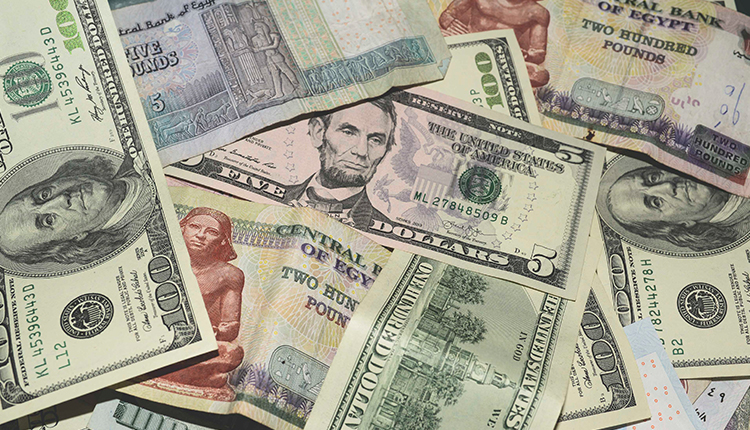Egypt’s pound currency is now under the forces of supply and demand since October 27 when the central bank moved to durably flexible exchange rate regime. This means there is no possibility of witnessing a pound floatation once again like the case in March 2022 and November 2016.
“…, the Central bank of Egypt (CBE) moved to durably flexible exchange rate regime, leaving the forces of supply and demand to determine the value of the EGP against other foreign currencies, while prioritising the primary goal of achieving price stability, and building up sustainable, adequate levels of Foreign Exchange Reserves.” the central bank explained in a statement.
The usage of pound floatation and a liberalised exchange rate regime are no more accurate terms for the meantime given the durable flexible exchange rate regime, banking sources told Amwal Al Ghad on Wednesday.
“Any increases or decreases in the value of the Egyptian pound are tied to the forces of supply and demand only as with all developed markets.” the sources explained.
The Egyptian central bank has professionally and carefully orchestrated the fiscal policy file, garnering the praise of international financial institutions. The CBE had managed to safeguard the fruits of the state economic reform programme, and thereby saving the country from the repercussions of the ongoing global crisis, according to the international financial institutions’ reports and reviews.
Accordingly, the global financial community has restored its trust in the Egyptian economy and in the CBE’s’ fiscal policy administration following the International Monetary Fund’s (IMF) executive board approval for a new financial support package for the country.
The CBE is working tirelessly to draw up solid fiscal policies and precautionary measures to face any updated global conditions. As such, these policies have helped banks secure more than $5.3 billion to meet market needs of foreign currencies within a month and a half — during the period from November until mid-December this year. These policies have also resulted in clearing a backlog of imports that contributed to soaring prices.
